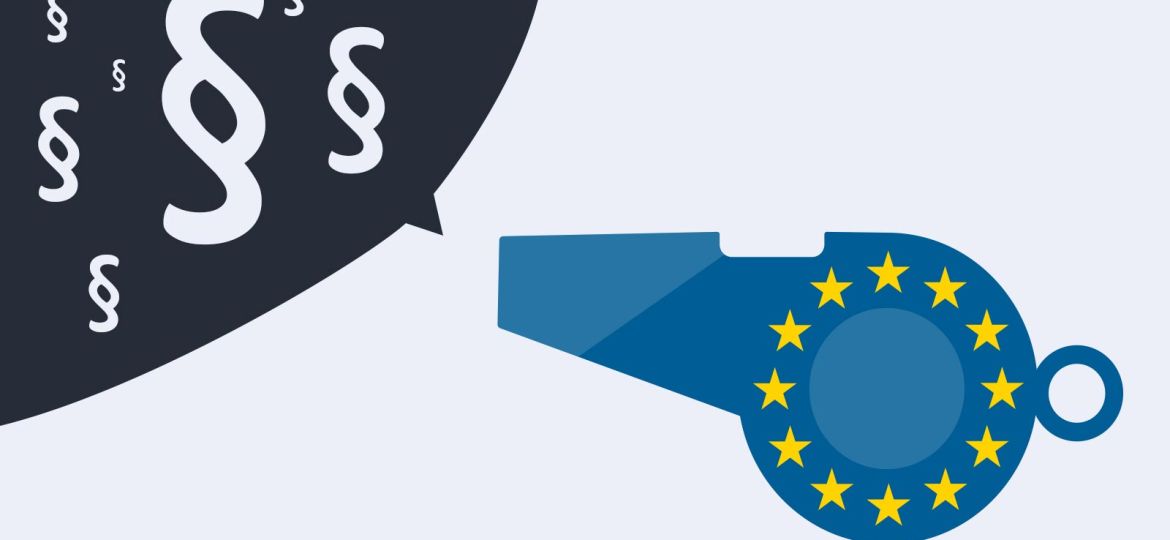
The New EU Whistleblower Directive
Copyright 2021 Christiana Aristidou LLC
Authored by: Christiana Aristidou, Periktioni Tsiorva
Updated: 21 March 2022
As of October 2019, the Directive (EU) 2019/1937, or in other words the EU Whistleblower Directive has been introduced to the public. Workers are often discouraged, intimidated, or threatened from reporting their concerns or suspicions on misconduct by entities. Most countries lacked effective protective measures against those who reported misconduct within companies.
Due to this, only a limited number of employees were willing to hold companies accountable for the misconduct they had noticed. This showed the gap within EU law on any mechanisms that could effectively provide protection to employees in countries with no national law that would safeguard whistleblowers. For this reason, a proposal was made in 2018 by the EU Commission to introduce a set of regulations that would protect whistleblowers to a reasonable extent and this has brought to us the current Whistleblower Directive.
As stated, this directive was implemented in order to sufficiently protect whistleblowers in all the Member States of the EU but also to strengthen even more the enforcement of existing laws in certain countries. Following the statement published in the Official Gazette of the Republic of Cyprus on the 20th January 2022, the Directive was voted to be adopted as a new Bill, titled “The protection of persons reporting violations of the EU and National Law” which has been enforced as of February 4th 2022. This Bill indicates an effort to combat any corruptive actions within the Republic and is one of three Bills that have been suggested to the Parliament whose purpose is to eliminate corruption as much as possible.
This regulatory framework can be enforced on all public legal entities as well as private companies with 250 or more employees from 2021, and 50 or more employees from 2023, unless the Member State is compelled under any national laws to introduce a whistleblower scheme, where such threshold will not apply.
The directive is not only addressed to employees of the companies but to individuals who provide their services to companies as well, such as freelance workers, contractors, subcontractors, and suppliers several other people who are related to companies on a commercial level. Individuals will be able to report on issues such as anti-money laundering and corporate taxation, data protection, protection of the Union’s financial interests, food and product safety and environmental protection, and more.
Under the Directive, there is a three-category reporting system by which employees will be able to voice their concerns. The first category introduces ‘Internal reporting channels’ which are arrangements promoted by the organisation or supplied by external providers and handled by an internal team that is solely responsible for such relevant matters. The second category includes ‘External reporting channels’ which are administered by the appropriate national authorities or the appropriate EU institutions, and in order to report to external channels, one should be directed to the allocated public authority.
The third and last category involves ‘Public reporting channels’ which allows employees to express their concerns through the media or even a public forum. Nevertheless, it is suggested that Member States encourage individuals to report to internal reporting channels first and then to public reporting channels in order to effectively address the issue at hand internally and to better ensure that the matter is dealt with confidentiality to avoid any risks of retaliation to the person that reports.
Thus, as stated by the Directive, information on the matter of reporting misconducts should be accessible to all, through the company by either posting information at a visible location or online, or by providing the information in seminars and courses. If a company is not compliant with the directive and the laws appointed by the government, penalties set by each nation will be imposed as stated within the Directive.
With the implementation of such regulations, apart from the protection of whistleblowers and the public interest, the Directive allows the enhancement of Union competition law, as well as the safeguard of efficient functioning of markets in the Union, providing businesses with a level playing field, attracting more investments and presenting benefits to consumers.
Following the statement published in the Official Gazette of the Republic of Cyprus on the 20th January 2022, the Directive was voted to be adopted as a new Bill, titled “The protection of persons reporting violations of the EU and National Law” which has been enforced as of February 4th 2022. This Bill indicates an effort to combat any corruptive actions within the Republic and is one of three Bills that have been suggested to the Parliament whose purpose is to eliminate corruption as much as possible.
Our clients should rest assured that we, along with our experience will be able to help prepare and advise them on any relevant requirements and conditions that are necessary in order for them to be ready for when the Whistleblower Directive has been enforced within their country. Some of the arrangements we can advise on are helping our clients by providing them with information on the necessary conditions for the introduction of an internal whistleblower system within their entity and implementing the reporting system which includes confidentiality, explanatory texts, providing details on rights and principles and even publishing the system within the Code of Conduct for instance. With our knowledge, we will be happy to advise employees on their rights and on the appropriate steps to take to report any misconduct as well as any further actions that should be taken while always ensuring that any steps followed are in our clients’ best interest.